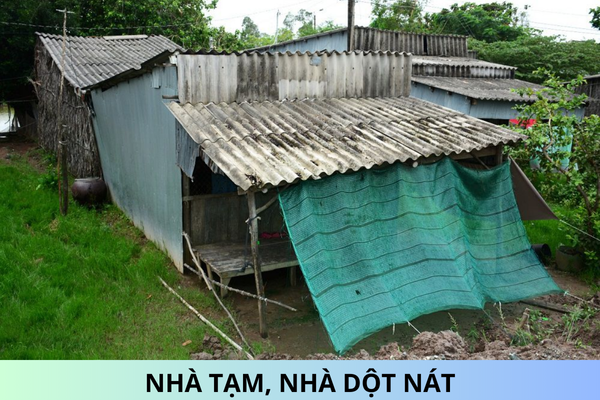What are 10 contracts regarding real estate in Vietnam that must be notarized, authenticated?
What are 10 contracts regarding real estate in Vietnam that must be notarized, authenticated?
Based on Article 164 of the Law on Housing 2023 on the notarization, authentication of contracts, and the effective time of contracts concerning housing:
Article 164. Notarization, authentication of contracts, and the effective time of housing contracts
- In cases of sales, hire-purchases, donations, exchanges, capital contributions, and mortgages of houses, the contracts must be notarized or authenticated, except for cases specified in Clause 2 of this Article.
For the transactions specified in this clause, the time the contract becomes effective is the time of the completion of notarization or authentication as stipulated by the law on notarization and authentication.
[...]
Based on Clause 3, Article 27 of the Law on Land 2024 regarding rights to convert, transfer, lease, sub-lease, inherit, gift real estate usage rights; mortgaging, and contributing capital with real estate usage rights:
Article 27. Rights to convert, transfer, lease, sub-lease, inherit, gift real estate usage rights; mortgage, and contribute capital with real estate usage rights
[...]
- The notarization, authentication of contracts, and documents performing the rights of land users are conducted as follows:
a) Contracts for transfer, donation, mortgage, and capital contribution with land use rights, and land use rights and assets attached to the land must be notarized or authenticated, except in the case specified at Point b of this clause;
b) Contracts for leasing, sub-leasing land use rights, and land use rights and assets attached to the land; contracts for transferring agricultural land use rights; contracts for transfer, capitalization with land use rights, and assets attached to the land, where one or both parties are real estate business entities can be notarized or authenticated at the parties’ discretion;
c) Documents for inheritance of land use rights and assets attached to the land must be notarized or authenticated according to the civil law;
d) Notarization and authentication follow regulations of the law on notarization and authentication.
According to the above regulations, the 10 types of real estate contracts that must be notarized or authenticated include:
[1] Contracts for Housing
- House sale contracts
- House hire-purchase contracts
- House donation contracts
- House exchange contracts
- Capital contribution contracts with housing
- House mortgage contracts
Note: The following cases are not required to have notarization or authentication unless requested by involved parties:
- Donation of gratitude, charity, or solidarity houses
- Purchase, hire-purchase of houses that are public assets
- Purchase, hire-purchase of houses where one party is an organization, including:
+ Social housing
+ Housing for the armed forces
+ Housing for resettlement
- Capital contribution with housing where one side is an organization
- Leasing, borrowing, staying in temporarily, or authorizing housing management
[2] Contracts regarding Land Use Rights and Associated Properties
- Contracts for the transfer of land use rights (land only), land use rights and assets attached to the land (land with housing or other property), except where the transfer involves a real estate business entity.
- Contracts gifting land use rights, and land use rights with assets attached to the land.
- Contracts mortgaging land use rights, and land use rights with assets attached to the land.
- Contracts for capital contribution with land use rights and land use rights with assets attached to the land.
Thus, the above contracts concerning land use rights, and housing (referred to as real estate contracts) must be notarized or authenticated; otherwise, they will be considered invalid.

What are 10 contracts regarding real estate in Vietnam that must be notarized, authenticated? (Image from the Internet)
Where is notarization carried out in Vietnam?
According to Article 46 of the Notarization Law 2024 on the notarization venues:
Article 46. Notarization Venues
- Notarization must be conducted at the office of the notarial practice organization unless specified otherwise in Clause 2 of this Article.
- Notarization can be conducted outside the office of the notarial practice organization if the requestor belongs to the following cases:
a) Making a will at domicile as per the Civil Code;
b) Unable to travel due to health reasons; undergoing inpatient treatment or being isolated as per a medical facility’s direction;
c) Being detained, serving a prison sentence, or subject to administrative handling measures;
d) Other legitimate reasons as prescribed by the Government of Vietnam.
Notarization must be conducted at the organization’s office, except for the following cases where it can be conducted elsewhere:
- Making a will at domicile according to regulations
- Unable to travel due to health reasons; undergoing inpatient treatment or isolation as per a medical facility’s direction
- Being detained, serving a prison sentence, or subject to administrative handling measures
- Other legitimate reasons as per the Government of Vietnam’s regulations.
What are the conditions for the person requesting notarization in Vietnam?
According to Article 49 of the Notarization Law 2024 regarding individuals requesting notarization, witnesses, and interpreters:
Article 49. Individuals Requesting Notarization, Witnesses, Interpreters
- Individuals requesting notarization must have legal capacity appropriate to the transaction they are conducting.
When the organization requests notarization, it is done through the legal representative or authorized representative of the organization.
Individuals requesting notarization must present all necessary documents related to the notarization and are responsible for the accuracy and legality of these documents.
- If the individual requesting notarization cannot read, hear, or sign, and cannot use fingerprints, or in other cases as defined by law, a witness must be present for notarization.
Witnesses can be invited by the individual or designated by the notary if no one is invited by the requestor; if no witness can be designated, the notarization is refused.
[...]
Thus, the conditions for individuals requesting notarization are as follows:
- For individuals: must have legal capacity appropriate to the transaction they are conducting.
- For organizations: the request for notarization is made through their legal representative or authorized representative.
Note: Individuals requesting notarization must present all necessary documents related to the notarization and are responsible for the accuracy and legality of these documents.










